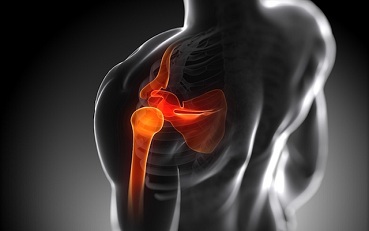„Shoulder Impingement Syndrome”, the Cause of Shoulder Pain
The most common cause of shoulder joint problems is shoulder impingement syndrome, also
know as subacromial impingement. If you feel growing pain and limitations of the shoulder
joint mobility during exercising or everyday activities, you may be suffering from this
condition.
ANATOMY:
The subacromial space is the shoulder joint area defined by such anatomical structures as:
Superiorly: acromion, coraco-acromial ligament, coracoid process, acromioclavicular joint
Inferiorly: humeral head, greater tubercle of the humerus
Chronic and repetitive compression of the elements within this area may cause lasting pain.
Elements such as: subacromial bursa, supraspinatus tendon, biceps tendon, articular capsule
of the humerus
The elevation of upper extremity, often above the head level, causes significant narrowing of
the subacromial space leading to mechanical compression of the above-mentioned structures.
This motion, if repetitive, can create inflammation and degeneration of the supraspinatus
tendon as well as the other rotator cuff muscles.

ETIOLOGY:
- rotator cuff weakness (supraspinatus, infraspinatus, teres minor and subscapularis muscle).
Properly functioning rotator cuff muscles prevent the humerus head from migrating
upwards, which limits the subacromial space compression
- decreased muscle performance caused by chronic, repetitive process in which upper
extremity is elevated above the head level
- overload training, especially in disciplines like: TENNIS, VOLLEYBALL, SWIMMING
- overload and incorrect exercising technique- especially when it comes to free weights
- acromion morphology (there are three types: flat, curved, and hooked which is associated
with cuff tear)
SYMPTOMS:
- shoulder joint pain during the upper extremity elevation (in sever cases, even the slightest
movement or muscle flex can cause pain)
- limited shoulder joint mobility (shoulder occurs to be stiffer)
- night pain
- rest pain (without doing any activities)
TREATMENT:
There are a lot of treatment methods for the above-mentioned condition. Measures taken early
on to improve health status give the best chance of speedy recovery. Inhibiting inflammatory
process in the early stages helps to prevent degenerative changes in tendons or muscle venters
counted among rotator cuff.
In the severe stage of this condition, it is elementary to concentrate on hindering the ongoing
joint inflammation. It can be achieved with physiotherapy procedures such as:
- Cryotherapy
- Iontophoresis
- Shock wave therapy
- Interferential therapy
- Laser therapy
- Ultrasound therapy
Manual therapy is proven to be vitally important in treating subacromial impingement. By
using manual therapy we can increase the mobility in the constricted joint and loosen soft
tissue, which due to the occurring symptoms, might be overly tensed. Thanks to this
procedure the stiffness in the shoulder joint decreases noticeably.
In our practice, we also use KINESIOTAPING, which is a taping technique that helps to
relieve the strain on muscles and reduce the pain.
The last, and often the most important part of physical therapy are properly selected exercises
that help to strengthen the rotator cuff and the shoulder girdle. Their main goal is to lower the
humeral head and to reduce the compression in the subacromial space. Furthermore, proper
and systematic execution of personalized exercises is the best preventive measure against a
recurrence.
In CORE and MORE we provide complex rehabilitation for patients suffering from „Shoulder Impingement Syndrome” using all methods mentioned above.
If You have some symptoms described in this article or have some problems with daily activities or during sport – we invite You to contact us!

